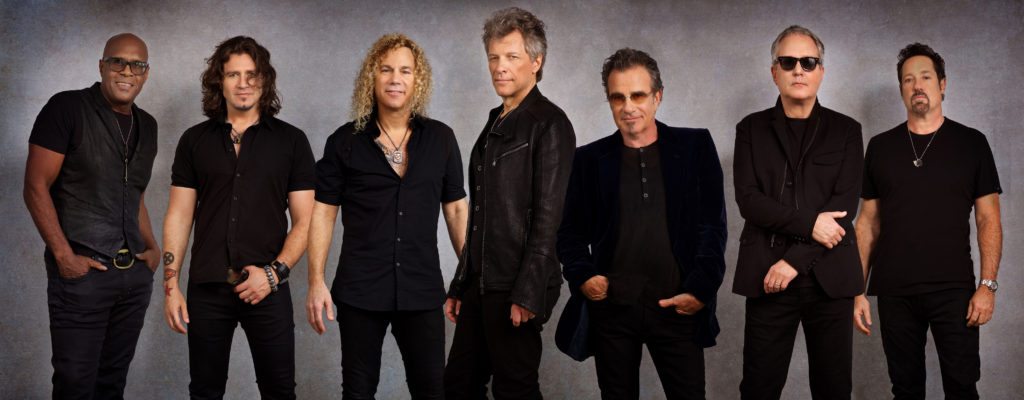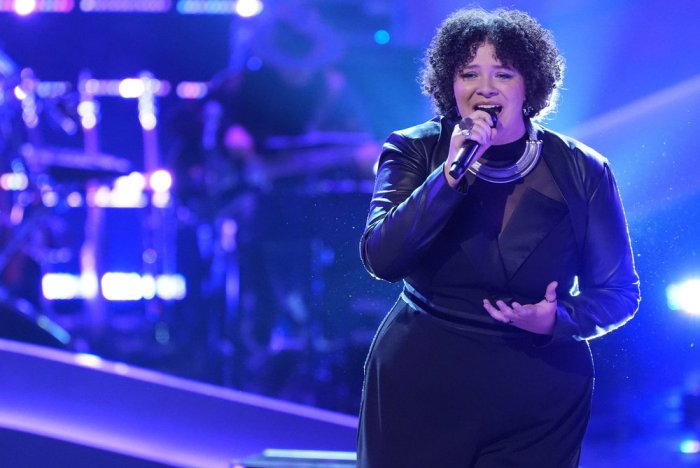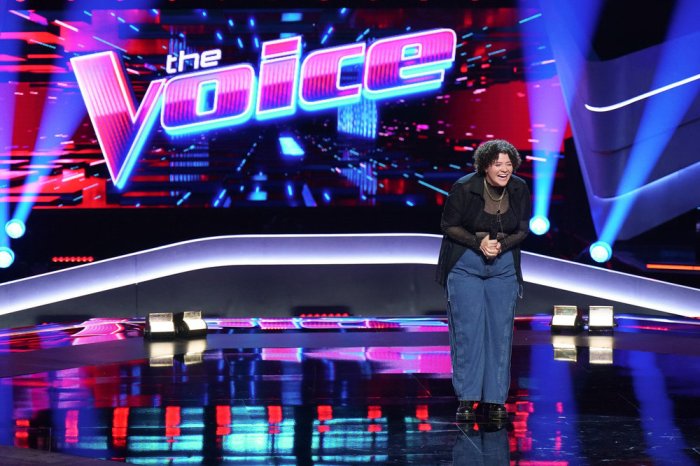
Longevity and consistency are probably the hardest goals to attain when it comes to being a top flight musical group. Iron Maiden guitarist Adrian Smith once said, “A band is sort of like a star. It reaches a peak and burns out. To have five guys working in perfect harmony longer than a couple of years is difficult.” So it’s no mean feat that for the three decade-plus years Bon Jovi has been together, only two of the original five members have departed over time starting with bassist Alec John Such getting fired in 1994. The band’s latest outing, last year’s This House Is Not For Sale, finds Bon Jovi moving on following the exit of guitar-playing founder Richie Sambora back in 2014.
 In the subsequent 20 years since John Such’s axing, the New Jersey outfit continued its creative evolution, going from its pop-metal roots to becoming more of a mainstream act with the occasional singer-songwriter/country nuance thrown in, as evidenced by the direction taken on 2007’s Crossroads, where band namesake Jon Bon Jovi found success duetting with the likes of Sugarland’s Jennifer Nettles and LeAnn Rimes.
In the subsequent 20 years since John Such’s axing, the New Jersey outfit continued its creative evolution, going from its pop-metal roots to becoming more of a mainstream act with the occasional singer-songwriter/country nuance thrown in, as evidenced by the direction taken on 2007’s Crossroads, where band namesake Jon Bon Jovi found success duetting with the likes of Sugarland’s Jennifer Nettles and LeAnn Rimes.
With the release of This House Is Not for Sale, Bon Jovi was moving ahead after Sambora’s drawn-out departure. With Richie X stepping in to play guitar, keyboardist David Bryan saw this as a chance for the band to reboot its record-making approach.
“The last few [releases] have been computer records with not all of us not being in the room at the same time and that’s kind of been the pattern,” he explained. “Then I said to Jon [Bon Jovi] that we should get everybody in the same room, look at each other and bash this out. I charted out all the songs and he was up for change and a bunch of ideas. It was musical as hell and he loved it. Some songs started out slow and got fast, so there was a real group effort. I think you can feel that real energy on the record. It’s gone number one in something like 30 countries. It’s done great for us and it’s really fun and I’m proud of it. It’s working out really great.”

Richie X came to Bon Jovi through John Shanks, who produced the group’s 2005 outing Have a Nice Day and has since been a regular studio presence right up through the most recent record. X’s role became permanent after it was officially announced that Sambora had left back in November 2014.
For this latest batch of songs, X slides in seamlessly with a workmanlike efficiency, laying in shimmering chords amid confessional couplets like “I may be gritting my teeth/Can’t get back where we started/These days I’m doing just fine” in “God Bless This Mess.” Likewise, on the opening title cut and a punchy solo dropped in among lines that find Jon Bon Jovi declaring, “No time for looking back, the wolf is at the door/This hear, this soul/This house is not for sale.” X is equally effective on the anthemic “Come Up To Our House,” punctuated by riffs that complement the camaraderie suggested by the sing-along quality of the vocal arrangements.
As quite the unsung contributor to the band, Bryan brings far more to Bon Jovi’s creative table than most casual fans realize. Thanks to Bryan’s jazz trumpeter father, the New Jersey native got an early start following in his pop’s footsteps and picking up trumpet at the tender age of five. An audition at age seven with Emery Hack, a piano teacher who had moved to the area following a career leading the NBC Orchestra on radio found the young man born David Bryan Rashbaum studying classical music with this instructor for the next 13 years. Hack was also a professor at Juilliard, where Bryan wound up going following a brief stint at a local college.
“I went to Rutgers [University] for pre-med and music and was getting straight As on the pre-med side, but I didn’t want to do it. I was doing demos with Jon at night at the Power Station,” he recalled. “I wanted to chase the classical dream and practicing eight-and-a-half hours [a day]. Then we ended up getting a record deal. It was fun and if it didn’t work out, I figured I could go back and do something else. So I’m still in my gap year here.”
Hitting The Great White Way
 Bryan is far from resting on his laurels in between Bon Jovi records. And while he’s released a pair of solo albums, 1995’s On a Full Moon and 2000’s Lunar Eclipse, his main non-Bon Jovi efforts have been in the world of musical theater. Along with playwright and fellow Garden Stater Joe DiPietro, the duo has received major accolades via the success of the musical Memphis. The story that was loosely based on the efforts of Dewey Phillips being one of the first white disc jockeys in Memphis to play black music in the 1950s won four 2010 Tonys (Best Musical, Best Book of a Musical, Best Original Score, Best Orchestrations) and mined some more hardware after moving to London’s West End and nailing three Laurence Olivier Awards in 2015 (Best Theatre Choreographer, Best Sound Design, Best New Musical).
Bryan is far from resting on his laurels in between Bon Jovi records. And while he’s released a pair of solo albums, 1995’s On a Full Moon and 2000’s Lunar Eclipse, his main non-Bon Jovi efforts have been in the world of musical theater. Along with playwright and fellow Garden Stater Joe DiPietro, the duo has received major accolades via the success of the musical Memphis. The story that was loosely based on the efforts of Dewey Phillips being one of the first white disc jockeys in Memphis to play black music in the 1950s won four 2010 Tonys (Best Musical, Best Book of a Musical, Best Original Score, Best Orchestrations) and mined some more hardware after moving to London’s West End and nailing three Laurence Olivier Awards in 2015 (Best Theatre Choreographer, Best Sound Design, Best New Musical).
Along the way, Bryan and DiPietro made hay with 2009’s award-winning Off Broadway production of The Toxic Avenger, a rock musical based on the 1984 cult film of the same name. It’s all become lucrative enough for Bryan to be in a position to have a significantly heavier workload while flexing different kinds of musical muscles.
“When it comes to making musicals, the hardest thing is writing songs for all different characters—young, old, male, female and everything in between. And then you’re incorporating story with song and dance. That’s why it takes so many years to do,” Bryan said. “I say that the only reason we get it right is because we ran out of things to do wrong. It’s a process of doom and a different discipline. I really haven’t done anything since the first couple of [solo albums] because once I found musicals, I’d already written 100 songs with other people. I do all the demos and each show is about 20 to 25 songs. I sing and it’s fun and the other actors wind up doing it about eight times a week.”
Bryan’s already-busy schedule also includes his work with a pair of charities, VH-1’s Save the Music and Only Make Believe. Save the Music is better-known for fighting to restore school music programs by not only donating musical implements, but enough money to enable districts to hire instructors for multiple year contracts to ensure students are being taught how to use these instruments. The Bon Jovi keyboardist is also an honorary board member for Only Make Believe, a nonprofit organization that brings musical theater to chronically ill and disabled children in hospitals and other medical facilities. It’s a cause that hits particularly home for the father of three.
 “Only Make Believe has to do with Broadway. Dena Hammerstein is a really good friend. When you see these kids at a hospital, with some being terminal and some aren’t, and you can have these performers come in, do a show and have the kids involved with it, it’s just great for them to get out of their little real estate called Hell for a couple of hours and give them a sense of positivity,” he said.
“Only Make Believe has to do with Broadway. Dena Hammerstein is a really good friend. When you see these kids at a hospital, with some being terminal and some aren’t, and you can have these performers come in, do a show and have the kids involved with it, it’s just great for them to get out of their little real estate called Hell for a couple of hours and give them a sense of positivity,” he said.
With 2017 taking Bon Jovi to concert legs in South America, the rest of the United States and Canada, next year will find Bryan and DiPietro working on Chasing the Song, a production centered on the 1960s and what was going on in the Brill Building. Not unlike Memphis, it taps into the fight for equality that was so endemic to that era.
“It’s about the first woman song publisher in the Brill Building in 1960. It’s all fiction because in reality, women didn’t own companies in the 1960s. They needed a man to cosign for a loan, which is crazy because you’d think that in our lifetime that wouldn’t exist,” he incredulously said. “But it existed, so it’s more about championing women’s rights and at the same time, there’s also civil rights that we deal with because it’s definitely in that time period. We wrote about 23 original songs for it and we’re working that one out. Joe and I have a little reading of it at a June workshop and then we’re going to get a production of it we hope to bring to town in 2018.”
Bon Jovi will be appearing on April 15 at Madison Square Garden, 4 Pennsylvania Plaza, NYC. For more information, visit www.thegarden.com or call 212-707-3131.































